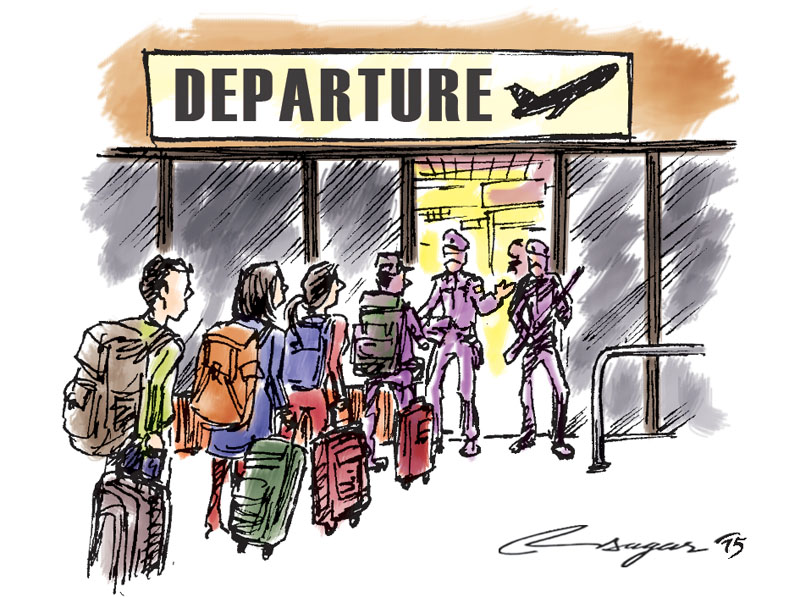Recruitment agencies victimising migrant workers
Kathmandu, December 18
Failure on the part of the government to crack down on recruitment agencies which charge illegal fees for jobs abroad is leaving migrant workers trapped in a vicious cycle of debt and exploitation.
Though the government has provided the service of free visa and free ticket to migrant workers due to the lack of proper execution of law, workers have been forced to pay for both visa and ticket.
According to the report released by Amnesty International in Nepal and Malaysia, on the occasion of International Migrants Day, almost two-third of Nepali migrant workers have become victims of illegal recruitment fees. As per the report 88 per cent people paid fee to the agents for jobs overseas. As these fees were so high, the majority of them had to borrow more than half the amount from village moneylenders, placing them in debt.
“Almost all migrants workers have been forced to pay nearly 10 times more than the price fixed by the government,” said Rajan Kuikel, chairperson of National Board Amnesty International. In July 2015 the government introduced the ‘free visa, free ticket’ policy, which reduced the maximum fee workers, could be charged up to NPR 10,000 in response to local and international pressure. But the policy is clearly not being properly enforced, said Kuinkel.
The report, ‘Turning People into Profits’, found that recruitment agencies were still freely exploiting migrants by charging above the limit.
Around 90 per cent workers who had paid a recruitment fee did not receive an accurate receipt from agents. This makes it difficult for them to file legal cases against unscrupulous agents and claim their money back, said the report.
“Nepali migrant workers are being systematically and mercilessly set up. Forced to take out loans to pay huge fees agencies charge for work abroad. Finally, they are left so indebted that they have no choice but to stay in low-paying or dangerous jobs,” said James Lynch, Deputy Director of Amnesty International’s Global Issues Programme.






